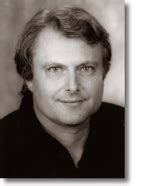A Quote by Johann Wolfgang von Goethe
We often feel that we lack something, and seem to see that very quality in someone else, promptly attributing all our own qualities to him too, and a kind of ideal contentment as well. And so the happy mortal is a model of complete perfection--which we have ourselves created.
Related Quotes
When someone new comes into your life and suddenly you feel more alive, more beautiful, more sexual, more creative, more desirable and more engaged; you feel that this new person is the key to those feelings. But actually, you have these qualities too. What you don't see and don't acknowledge in yourself, you project onto someone else. Carl Jung explored this very well. He called it projection.
I’d always heard that when you truly love someone, you’re happy for them as long they’re happy. But that’s a lie. That’s higher-road bullshit. If you love someone so much, why the hell would you be happy to see them with anyone else? I didn’t want the easy kind of love. I wanted the crazy love, the kind of love that created and destroyed all at the same time.
As an introvert, you can be your own best friend or your worst enemy. The good news is we generally like our own company, a quality that extroverts often envy. We find comfort in solitude and know how to soothe ourselves. Even our willingness to look at ourselves critically is often helpful.But, we can go too far. We can hoard responsibility and overlook the role others play. We can kick ourselves when we're down. How many times have you felt lousy about something, only to get mad at yourself for feeling lousy?
Lack of self-confidence is, more often than not, simple laziness. We feel confused and uncertain because we do not know. But instead of making the effort to investigate, we procrastinate and worry. We tell ourselves we can't instead of learning how we can. If we used the mental energy we expend in worry and fear to get out and find out about what we do not know, we would see our self-confidence grow. Lack of self-confidence is not overcome by faith, but by action. It is a lack, not of certainty, but of effort. Too often we are certain that we can't before we give ourselves a fair chance.
I think we communicate only too well, in our silence, in what is unsaid, and that what takes place is a continual evasion, desperate rearguard attempts to keep ourselves to ourselves. Communication is too alarming. To enter into someone else's life is too frightening. To disclose to others the poverty within us is too fearsome a possibility.
To me, then, true criticism consists in trying to find out the intrinsic worth of the thing itself, and not in attributing a quality to that thing. You attribute a quality to an environment, to an experience, only when you want to derive something from it, when you want to gain or to have power or happiness. Now this destroys true criticism. Your desire is perverted through attributing values, and therefore you cannot see clearly. Instead of trying to see the flower in its original and entire beauty, you look at it through coloured glasses, and therefore you can never see it as it is.
Hope and fear come from feeling that we lack something; they come from a sense of poverty. We can’t simply relax with ourselves. We hold on to hope, and hope robs us of the present moment. We feel that someone else knows what is going on, but that there is something missing in us, and therefore something is lacking in our world.
But how can we love someone if we don't like him? Easy-we do it to ourselves all the time. We don't always have tender, comfortable feelings about ourselves; sometimes we feel foolish, stupid, asinine, or wicked. But we always love ourselves: we always seek our own good. Indeed, we feel dislike toward ourselves, we berate ourselves, precisely because we love ourselves; because we care about our good, we are impatient with our bad.
Unconsciously we all have a standard by which we measure other men, and if we examine closely we find that this standard is a very simple one, and is this: we admire them, we envy them, for great qualities we ourselves lack. Hero worship consists in just that. Our heroes are men who do things which we recognize, with regret, and sometimes with a secret shame, that we cannot do. We find not much in ourselves to admire, we are always privately wanting to be like somebody else. If everybody was satisfied with himself, there would be no heroes.






































